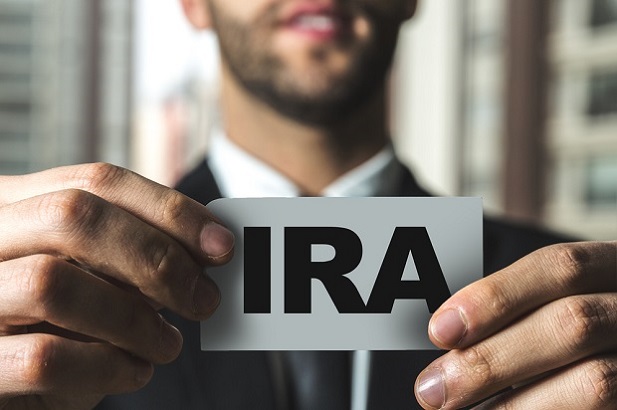 As in Oregon, California, and Illinois, workers have the ability to opt-out of the New Jersey savings plan after they are automatically enrolled. (Photo: Shutterstock)
As in Oregon, California, and Illinois, workers have the ability to opt-out of the New Jersey savings plan after they are automatically enrolled. (Photo: Shutterstock)
A version of New Jersey's Secure Choice Savings Program Act amended by the Garden State's Senate passed the General Assembly on Monday by a 55 to 18 vote.
The bill, which establishes an automatic IRA retirement savings program administered by the state, now moves to Gov. Phil Murphy's desk, who is expected to sign it into law.
New Jersey is the latest to move forward with state-administered IRAs, which are designed to address the access gap to workplace retirement plans in the private sector.
Businesses that employ at least 25 workers and do not offer a private-sector retirement plan will be required to enroll workers in IRAs in New Jersey. Businesses with fewer than 25 workers will be allowed, but not required, to enroll workers in the plan.
Oregon is furthest along a phased rollout of its auto-IRA plan, which will be competed by May of 2020. As of September 1, 2018, Oregon had 1,160 employers enrolled in its plan, accounting for 39,284 employees. Monthly contributions to Roth IRAs averaged about $100, and total assets in the program were more than $6.7 million, according to Ascensus, record-keeper to the Oregon's plan.
California and Illinois are in the midst of rolling out their state-IRA programs.
Like those states, New Jersey's legislation includes language that sets parameters for the types of investments that can be offered. New Jersey's plan will offer no more than five investment options. Eligible workers will be defaulted into a target-date fund at 3 percent of salary if they do not select an investment or savings rate on their own.
And as in Oregon, California, and Illinois, workers have the ability to opt-out of the savings plan after they are automatically enrolled.
The opt-out provision is central to the states' claims that enrollment in the plans is voluntary. An existing Labor Department safe harbor protects employers from fiduciary liability if enrollment in IRA savings plans is “completely voluntary” and employers do not contribute to the plan.
The Obama administration crafted an updated safe harbor that extended to employers that automatically enrolled workers into IRAs, so long as employees had the ability to opt-out of the plans.
But Senate Republicans narrowly scuttled that safe harbor in 2017.
An ERISA plan or not?
States nonetheless proceeded with auto-IRA plans after that action. Last May, a California-based taxpayer advocacy, the Howard Jarvis Taxpayers Association, sued CalSavers IRA program in federal court, alleging the program violates the Supremacy Clause of the U.S. Constitution.
At issue in the claim is the question of whether the CalSavers program is preempted by the Employee Retirement Income Security Act, a federal law.
Legislation that has advanced programs in New Jersey and the other states includes explicit language that says the programs are not employer-sponsored plans and are not operated or administered by employers.
“A participating employer shall not be a fiduciary, or considered to be a fiduciary,” says New Jersey's bill. Under ERISA, employer sponsors of retirement plans are fiduciaries.
New Jersey's bill also instructs the board overseeing its plan to request confirmation from the Labor Department that ERISA does not preempt the state-IRA plan.
“The board shall not implement the program if the IRA arrangements offered under the program fail to qualify for the favorable federal income tax treatment ordinarily accorded to IRAs under the Internal Revenue Code or if it is determined that the program is an employee benefit plan and State or employer liability is established under ERISA,” according to language in the law.
How California's lawsuit could impact other state plans
The Howard Jarvis Taxpayers Association petitioned the U.S. District Court for the Eastern District of California to block implementation of CalSavers. CalSavers subsequently filed a motion to dismiss HJTA's petition.
The court requested supplemental briefs from both parties, which were submitted last November.
ERISA “does not allow state-run retirement programs for private employees,” according to HJTA's original complaint.
“We remain confident that we are on strong legal ground,” John Chiang, California's Treasurer, said in an email to BenefitsPRO last year.
The issue of ERISA's preemption over CalSavers and other state plans raises a novel legal question, say attorneys.
“It is definitely not an open and shut matter,” said Dominic DeMatties, a partner at Alston & Bird and former benefits counsel at the Treasury Department, in a previous interview. “There are good arguments to be constructed on either side of this case.”
A ruling in favor of HJTA is all but certain to result in an appeal by Treasurer Chiang and other California officials named in the suit, say attorneys, potentially leaving the question of the legality of state-administered IRA plans unanswered as states continue phased rollouts of programs, and others consider implementing plans.
New Jersey's law says its Secure Choice program will be implemented within 24 months of enactment of the law in two rollout phases, beginning with larger employers that don't offer retirement plans, according to language in the law.
READ MORE:
Preferred recordkeeper to state IRA plans says enrollment in Oregon better than expected
© 2025 ALM Global, LLC, All Rights Reserved. Request academic re-use from www.copyright.com. All other uses, submit a request to [email protected]. For more information visit Asset & Logo Licensing.








